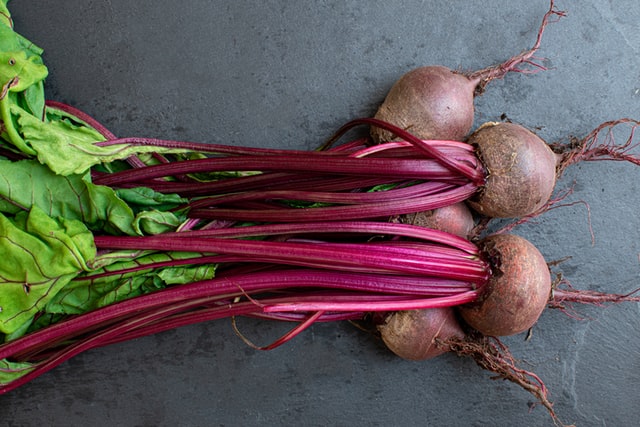Beets can be scary for people who don’t know much about them. They are bumpy, blood-red, and kind of taste like dirt. But beetroot is a lot more than what meets the eye.
Camille Skoda, RD, a registered dietitian, says, “Beets are unique.” “They’re one of the few fruits or vegetables with that deep red-purple colour, and the nutrients and antioxidants they give you are different from what you’ll get from other fruits and vegetables.”
And if you cook them right, they can be surprisingly tasty. Here’s why you should take another look at beets.
Betalains are pigments that give a lot of colours.
What makes beets such gems? They get their jewel-like colour from betalains, a type of plant pigment that is good for your health and gives plants their colour. Betalains contain:
- Antioxidants are natural substances that help keep your cells from getting hurt. Antioxidants might make it less likely that you will get heart disease, cancer, or other diseases.
- Anti-inflammatory properties: Chronic inflammation in the body is linked to a number of diseases, such as Type 2 diabetes, high blood pressure, heart disease, asthma, and obesity.
Even though these pigments are good for you, Skoda warns that they can turn your urine bright red. “It can be a little scary to forget that you ate beets. But it’s completely safe.”
Beetroot benefits
Betalains are only the tip of the iceberg. Beets also have some other good qualities:
- Beets have a lot of fibre. Fibre can help you control your blood sugar, keep a healthy weight, lower your cholesterol, and keep your bowels moving.
- Nitrates: “Beets have nitrates, which help blood vessels get bigger,” says Skoda. “That can help with high blood pressure and may also make you better at sports and make your brain work better.”
- Vitamins and minerals: “Beets and beet greens are good sources of folate, a B vitamin that is especially important during pregnancy,” says Skoda. They are also a good source of vitamin C, potassium, and magnesium.
A rainbow of benefits from beets
The more colours you eat, the better. Different plant colours mean different plant nutrients. Skoda says, “Try to eat something from each colour of the rainbow every day.”
Beets make it easy because they come in a rainbow of colours:
- Betacyanins are a type of betalain that are found in high amounts in red and purple beets.
- The betaxanthins in yellow or golden beets are a different type of betalain. (If the colour of your urine scares you, these are the beets to get!)
- Beet greens are a deep, dark green, which is a sign that they are full of good things. Skoda says, “They are a great source of B vitamins and should not be wasted in any way.” You can saute them or put them in a salad.
What to do with beets
You now know why beets are the best. So how can you eat more of them?
Turn your can opener handle.
Beets that come in a can are as easy as it gets. They can be cut up for a salad. Or, you can mix them with hummus to make a cute pink dip. “If you don’t like the earthy taste of beets, mixing them into a dip can help,” says Skoda. “Just make sure to look for beets in a can that don’t have any extra salt or ingredients,” she says.
Start your oven up.
The earthy sweetness of beets comes out when you roast them. Skoda says, “You can also thinly slice them and dry them in the oven to make crunchy beet chips.”
Grab a glass
Whole beets have more fibre than beet juice does. Skoda says that juice is a good way to get more out of beets if you want to boost your brain power or improve your athletic performance. Most supermarkets sell beet juice. You can even find powdered beet juice supplements in the fitness section of grocery stores or vitamin shops.
Is there a bad thing about beets?
Before you load up on beets, you should know that they have a lot of oxalates, which can cause kidney stones. Skoda says that if you have kidney stones, you should eat beets and beet greens in small amounts.
Most healthy people, on the other hand, don’t have to worry about oxalates. As part of a healthy, varied diet, beets are hard to beat.
